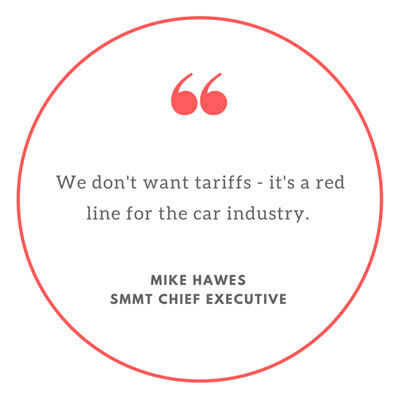UK economy surges but Hammond warns of uncertainty ahead
The UK economy once again defies post-Brexit predictions as growth reaches 0.6 percent, despite worries of future uncertainty and possible threats to the viability of the motor industry.

Yiannis Theologos Michellis via https://creativecommons.org/licenses/by-sa/2.0/
Office for National Statistics: Q4 growth up, driven by the services sector
Overall growth in Q4 was driven by the all-important services sector, which accounts for more than three-quarters of the nation's GDP. A 0.8 per cent rise in the sector was largely attributable to a 1.7 per cent expansion from the distribution, hotels and restaurant industries.Chancellor of the Exchequer Philip Hammond, on a visit to Microsoft's UK headquarters in Reading, commented: "Every major sector of the economy grew last year, which is further evidence of the fundamental strength and resilience of the UK economy. There may be uncertainty ahead as we adjust to a new relationship with Europe, but we are ready to seize the opportunities to create a competitive economy that works for all.”Related articles:
- UK industrial plan focuses on skills for 'industries of the future'
- Services provide further boost to UK economy
- ONS report highlights UK 'productivity puzzle'
However, the data showed that while the agriculture sector had expanded by 0.4 per cent in the final three months of the year, the construction industry expanded only marginally (0.1 per cent) and industrial production was flat.
Analysts point to a post-Brexit uncertain future
Darren Morgan, head of GDP at the ONS, said the figures showed the economy had ended 2016 with "steady growth". He added: "Strong consumer spending supported the expansion of the dominant services sector and, although manufacturing bounced back from a weak third quarter, both it and construction remained broadly unchanged over the year as a whole."Jonathan Chitty, investment analyst at Brown Shipley, commented: "The first estimate of GDP for Q4 was slightly ahead of expectations. Despite fears the economy would suffer in the second half of the year following the Brexit vote, the data has thus far painted a very different picture and today's figures add to a raft of other indicators suggesting that it is business as usual for Britain."There is, however, a great deal of uncertainty over how Europe will respond to the government's Brexit strategy outlined in Theresa May's speech last week and there is plenty of potential for conditions to deteriorate once Article 50 is triggered and negotiations commence."The Society of Motor Manufacturers and Traders (SMMT) raises red flag about post-Brexit tariffs
Meanwhile, the Society of Motor Manufacturers and Traders (SMMT) reported that about 1.7 million vehicles were produced in 2016, with 1.35 million of them going for export. However, the society said the 8.5 per cent rise on 2015 was accompanied by a fall in investment last year, from £2.5 billion the year before to £1.66 billion, because of uncertainty over the post-Brexit economy.
 Get access to our free Global Mobility Toolkit
Get access to our free Global Mobility Toolkit 









































